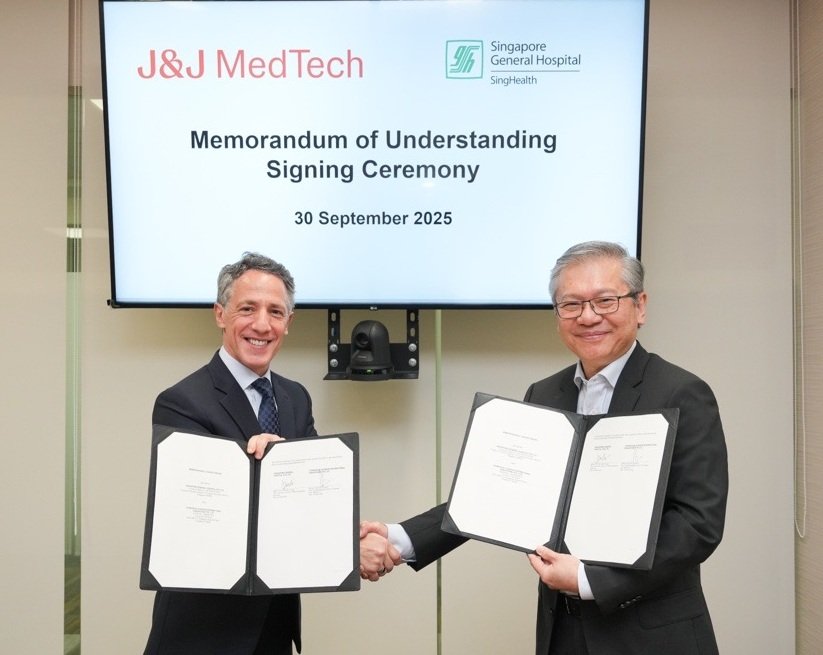
Image credit: Singapore General Hospital
Singapore General Hospital (SGH) and Johnson & Johnson MedTech are collaborating to explore innovative surgical approaches, focusing on optimizing robotic-assisted surgery workflows to enhance surgical planning, reduce operating room turnaround times, and improve overall efficiency.
SGH has now launched of a Centre of Excellence (CoE) for robotic-assisted surgery, ensuring orthopaedic surgeons are equipped with knowledge of emerging technologies as the population ages and surgical needs evolve.
The Center is part of a two-year strategic collaboration with Johnson & Johnson MedTech, formalized by an Memorandum of Understanding (MoU), focused on knee replacement training and research. The MoU was officially signed by Professor Tan and Guillermo Frydman, Area Managing Director of MedTech Southeast Asia at Johnson & Johnson MedTech.
The CoE will serve as the primary regional training hub for surgeons across Southeast Asia, and host comprehensive training programmes and regional preceptorship sessions.
The collaboration encompasses three key areas:
A recent study by Associate Professor Lincoln Liow and his team at SGH compared outcomes of robotic-assisted and conventional total knee replacement surgeries. Robotic-assisted surgery showed shorter surgery times (78.2 vs. 85.5 minutes), improved early mobility (22.2 vs. 11.3 meters), and shorter hospital stays (2.48 vs. 3.66 days). At six months, 76.9% of robotic-assisted patients achieved meaningful pain improvement, compared to 60% in the conventional group.




